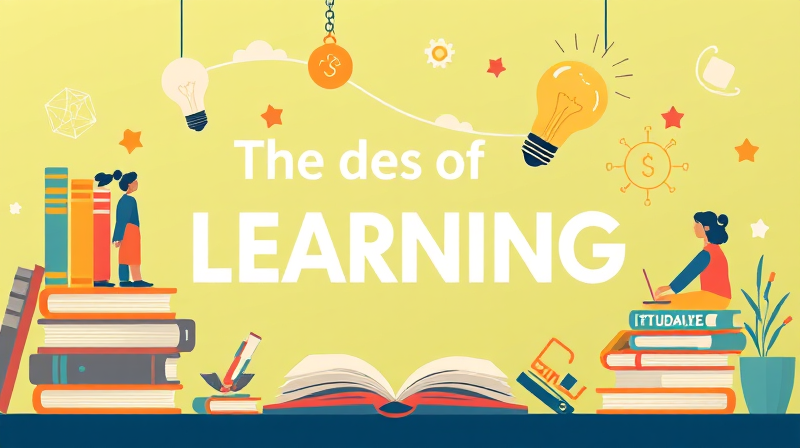Analytical thinking is not just a skill reserved for academics or professionals—it is a daily practice that deepens our understanding of the world. Through engaging with exquisite literature and sparking meaningful dialogue, students and readers can unlock a world of insights that transform how they perceive and interact with ideas. This article explores how literature and dialogue work together to foster analytical abilities and inspire a lifelong love of learning.
Literature serves as a gateway to the minds of authors and cultures across time. When we dive into classic novels, thought-provoking poems, or contemporary narratives, we are invited to explore complex emotions, societal issues, and intellectual debates. Such texts challenge us to look beyond the surface, encouraging us to question and to analyze. In this way, reading becomes an active dialogue—a conversation we have with the text and its creator.
The Transformative Power of Literature
Immersing ourselves in literature can lead to profound personal and intellectual growth. Books and articles present us with a myriad of perspectives that entice us to consider the intricacies of human experience. By exploring these narrative landscapes, readers are equipped to:
- Clarify opinions by distinguishing between subjective experiences and objective facts.
- Identify relationships between ideas, thereby uncovering the layers of meaning hidden within the text.
- Assess the credibility of arguments, thus enabling us to draw well-informed conclusions.
- Consider alternative viewpoints that enrich our understanding and challenge our biases.
These skills are crucial, not just in academic settings, but also in everyday decision-making. When literature challenges us to think critically and assess the robustness of arguments, it inadvertently prepares us for engaging in the world in a more thoughtful and reflective manner.
In our modern classroom settings, educators have recognized that literature is more than a narrative form—it is a tool that can cultivate analytical minds. The act of reading thus becomes a journey of exploration where every page is an invitation to question and to evaluate. Adopting diverse texts broadens our horizons, prompting us to reassess preconceived notions and to welcome a more inclusive perspective on life and society.
Harnessing Dialogue as a Catalyst for Analysis
Beyond the written word, dialogue plays an instrumental role in reinforcing analytical skills. Classroom discussions, peer-to-peer debates, and thoughtful exchanges of ideas encourage us to articulate our thoughts and to listen actively to diverse opinions. When students engage in these conversations, they are not only sharing their views but also constructing a sophisticated understanding of complex issues.
In a supportive environment, discussion can help participants to:
- Articulate and defend their interpretations by learning how to present arguments with clarity and conviction.
- Engage with alternative viewpoints, challenging themselves to refine and reassess their stance.
- Practice clarifying and elaborating their initial thoughts, leading to deeper insights.
- Evaluate the relevance of discussions that explore both supporting and opposing evidence.
The true magic of dialogue lies in its ability to transform a passive reading experience into a dynamic process of critical inquiry. Every voice matters in such discussions, as each perspective adds a layer of richness that can fundamentally change how problems are approached and solved.
Proven Strategies That Spark Meaningful Conversations
Facilitating effective and inspiring dialogue in classrooms requires thoughtful implementation of specific strategies. Educators can utilize several techniques that have proven effective:
- Talk Moves: Engage students with specific discussion techniques that prompt them to elaborate on their thinking.
- Traditional Debate: Encourage students to adopt different stances under time constraints, which fosters quick thinking and adaptability.
- The Last Word Standing: Use pre-reading activities to invite students to present and discuss poignant points of a text.
- Continuum Dialogue: Organize activities where the physical positioning along a continuum reflects one’s stance on various issues, promoting a visual understanding of collective opinions.
These methods are more than mere classroom activities. They represent well-thought-out approaches to engage students actively and to mold their ability to analyze, critique, and express ideas with precision.
Cultivating a Culture of Critical Thought
For literature and dialogue to have a lasting impact on analytical abilities, educational institutions must adopt a holistic approach in nurturing a culture that values critical thinking. Establishing clear norms about respectful debate and open dialogue is essential. Educators can take a few concrete steps to embed these values:
- Set clear expectations that encourage thoughtful and respectful contributions from all students.
- Clarify key terms such as "free speech" and "civil discourse" to ensure that everyone speaks from a shared understanding.
- Promote voluntary participation, creating an environment where every student feels comfortable contributing.
- Embrace the nuanced nature of complex issues, encouraging discussions that move beyond binary viewpoints.
By building a supportive framework that nurtures open inquiry, educators create a safe academic space where each student can grow intellectually. This transformation helps students understand that the process of learning is continuous, evolving through the balance of literature and dialogue.
In a world that often emphasizes quick solutions and oversimplified narratives, the emphasis on analytical thought through literature and conversational exchange becomes even more vital. When students are encouraged to engage deeply with texts and to debate ideas respectfully, they learn to navigate complexities with wisdom and agility.
Ultimately, the journey towards enhanced analytical abilities is one of empowerment and self-discovery. The interplay between literature and dialogue not only enriches our academic pursuits but also prepares us for the challenges of a multifaceted world. Embracing this dual approach, we cultivate minds that are rigorous, compassionate, and innovative—ready to tackle the intricacies of life with a clear and thoughtful lens.
May every reader and every participant in a dialogue take this message to heart and be inspired to explore new ideas, challenge old beliefs, and grow their understanding of the rich tapestry of human thought. Every step of engagement brings us closer to becoming not only better thinkers but also more empathetic individuals aware of the world’s deep and beautiful complexity.








